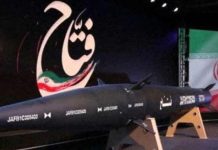Khola Junaid
IMPLICATION OF RUSSIA-UKRAINE WAR ON NATIONAL SECURITY OF PAKISTAN
On February 2022, Russia began a military war against Ukraine, since the collapse of the “Soviet Union“ Russia has harboured deep animosity towards Ukraine, which it still views as a critical part of Soviet Union and aims to revive the Russian empire while preventing a democratic encirclement of the country. It views the invasion of Ukraine as conveying a clear statement about its opposition to NATO’s further expansion against Russia and Ukraine’s future intentions to join NATO.
“Strong do what he wants to do and weak has to suffer”
This is the situation of Pakistan in the Russian-Ukraine war. The ongoing confrontation between Russia and Ukraine has significant repercussions for the geopolitical environment worldwide. Countries all across the world are being compelled to think about how the conflict may affect their own national security interests as it intensifies. Pakistan, which has a history of relations with both Russia and Ukraine, is one such nation. In this article, we will discuss how the conflict between Russia and Ukraine have implications on Pakistan’s national security.
Most nations are feeling the heat of the ongoing Russian-Ukraine conflict in the form of shortages of basic goods and rising costs. In all of its manifestations, the conflict in Ukraine is damaging the global economy, which was already reeling from COVID-19. Pakistan is an unstable developing country already facing the issue of balance of payments and not the imminent but the risk of default. Pakistan can be impacted by this conflict from both political and economical fronts. Diverse facets of the population while seeing the policies of U.S towards Pakistan demand the policy makers to side towards Russia. But for Pakistan a country with drowning economy, devaluing currency and at the peaks of political instability it wouldn’t be good choice to make.
Pakistan a country that largely depends on exports, it imports military weapons from Russia and has made arrangements to buy LNG (liquefied natural gas) to fulfill its energy demands. Furthermore, Pakistan imports wheat and meslin from Ukraine, with imports totaling US$477.78 million in 2021. However, Russia’s invasion of Ukraine has put strain on the global supply chain, resulting in higher LNG prices. LNG companies have backed down on their agreements with Pakistan in order to access more lucrative European markets, generating immediate problems for Pakistan, which is now forced to buy costly LNG. Due to the ongoing conflict between Russia and Ukraine, Russia’s blockade of Ukrainian ports has prevented Ukraine’s wheat and other agricultural exports from reaching several nations. As a result, Pakistan and a number of other countries have experienced food shortages, resulting in price increases.
Hence, Pakistan is experiencing frequent and extended power outages, exorbitant electricity bills, and obstacles to other services with rapidly increasing inflation. Since the beginning of the war, the price of oil has increased to above $100 approx. per barrel, and supply and development have stalled. Further fuel price increases is disastrous for Pakistan since it has further depleted its foreign exchange reserves.
Furthermore the ongoing conflict between Russia and Ukraine has implications beyond just economic issues, and could potentially impact Pakistan’s security. As it can cause regional instability and reviving hostilities between Pakistan and India, two nuclear-armed neighbors. Russia has recently provided India with cutting-edge military equipment and gear, including the S-400 air defense system, which has caused Pakistan to be apprehensive. India is making sure that it doesn’t condemn Russia and sever ties with it, as it doesn’t want China and Pakistan to get closer to Russia and form an alliance, which would not be in
the strategic Interest of India and would be a security threat for it. India is trying to forge friendship with Russia so that Pakistan or China don’t get a chance to do so.
The Ukrainian war has brought national sovereignty and territorial Integrity concerns to light, which might have implications for Pakistan’s own territorial disputes. Pakistan may be concerned about how the war is influencing international standards regarding these matters and the possible effects it might have on its own claims to disputed territories. So the Russian-Ukraine conflict has its implications on Pakistan’s National Security and can even worsen and effects Pakistan territorial sovereignty. For that matter the situation in Ukraine must be constantly monitored by Pakistan, and it must take action to lessen any detrimental effects on its interests in national security.
Also, Pakistan a country that borders with Afghanistan, any unrest in region could possibly spill over into Pakistan, the conflict has affected Afghanistan’s security situation. Following the withdrawal of US forces, Afghanistan is now more susceptible to unrest and hostilities. The Taliban have been alleged to receive backing from Russia, which could exacerbate the situation in Afghanistan and cause it to spread into Pakistan.
The situation in Ukraine must be constantly monitored by Pakistan, and it must take action to lessen any detrimental effects on its interests in national security. To avoid becoming overly dependent on any one of the nation, it must diversify its supplies of LNG, wheat, and other necessities. To lessen its reliance on fossil fuels, Pakistan must also endeavor to upgrade its energy infrastructure and create its own renewable energy sources.
In conclusion, Pakistan’s national security is significantly being impacted by the ongoing conflict between Russia and Ukraine. Pakistan is already experiencing the economic effects of conflict, with increased prices and a shortage in basic necessities. But there is also a fear regarding the conflict’s potential to spread to other regions, such as extremist activities and military buildup. Pakistan has maintained a stance of neutrality towards the Russian-Ukraine conflict because Pakistan is not in the condition to face the pressure and side effects of parting with one side, as two super powers one through proxy means and the other is directly involved in the war. Moreover, to protect its own interests and uphold regional stability, Pakistan must carefully navigate this complex geopolitical landscape. Pakistan must protect its national security interests and for that matter it should do whatever it takes.

















